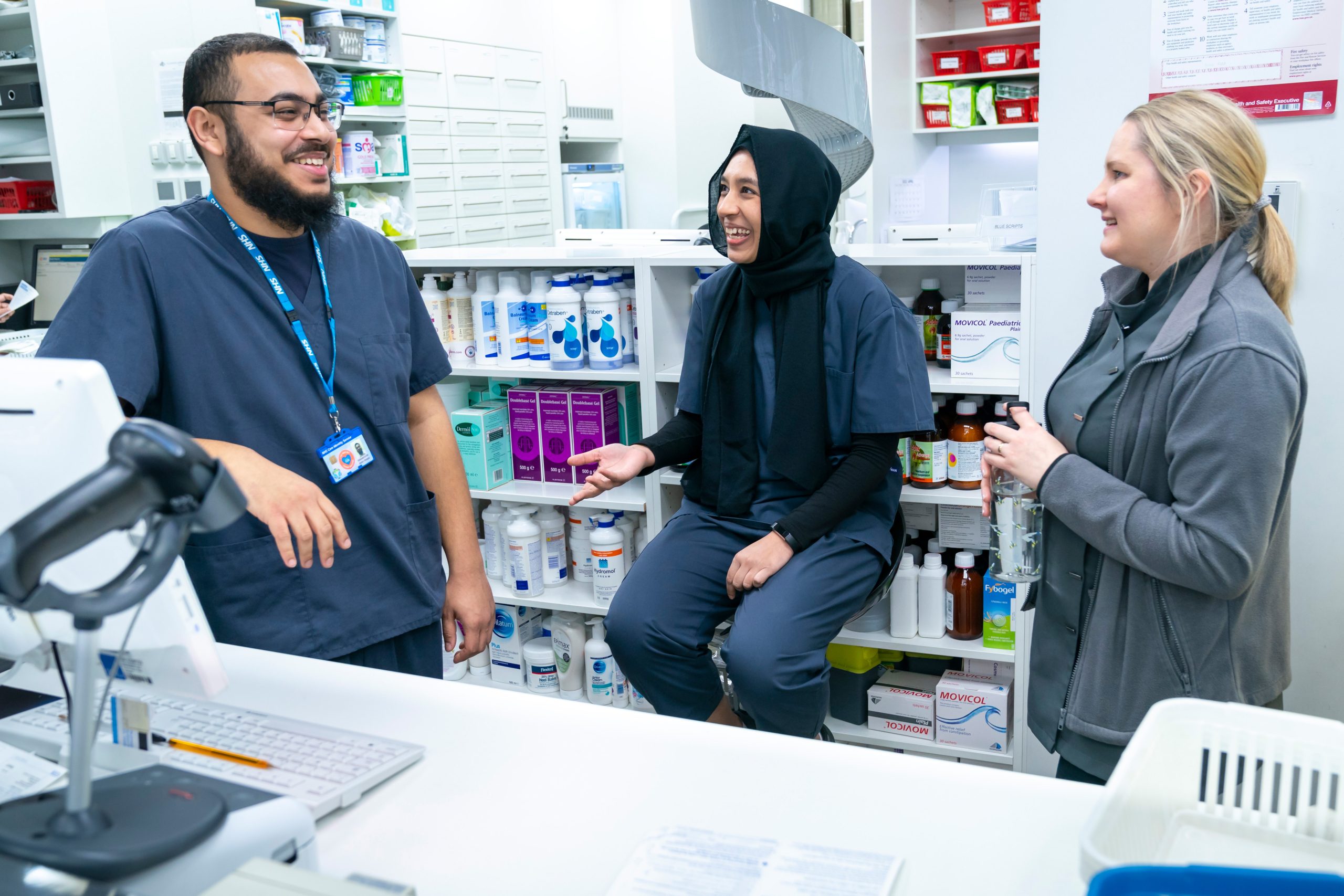
Embracing a Workplace Wellbeing Culture
Find out how you can make a positive impact on your team and workplace environment through our Embracing a Workplace Wellbeing Culture course for pharmacy managers, supervisors, and leaders.

Matthew Shaw - Director at CPPE -shares with us his journey to better understand and support feelings of loneliness and isolation across his team.
At CPPE we have had Investors in People accreditation for over 25 years and at our last big review, I asked the assessor to take a particular focus on improving how we invest in the wellbeing of the whole team. One of the themes that surfaced was a sense of isolation as a consequence of Covid. For me that was a trigger to think about isolation and its links with loneliness.
As the leader of the organisation, my aim was to gain a better understanding of how organisational structure plays a part in wellbeing so that I could better support our approach to our hybrid working model. My learning covered isolation, how that relates to feeling lonely and why we should recognise loneliness both for physical and mental wellbeing. I also looked at what I could change within the structure to gain a positive impact.
I think it’s worth sharing this because reviews of workers show that the shift to hybrid working was found to impact on feelings of loneliness. The return to a new form of hybrid working offers the opportunity to explore the impact of the workplace and organisational structures to consider the extent to which changes could be proposed that would result in a decreased sense of isolation. By reducing isolation, a more general reduction in feelings of loneliness and wellbeing across the team may be assured.
Matthew Shaw - Director at CPPE - shares with us his journey to better understand and support feelings of loneliness and isolation across his team.
Matthew Shaw - Director at CPPE -shares with us his journey to better understand and support feelings of loneliness and isolation across his team.
During the Covid pandemic CPPE carried on working, but all staff were required to work from home. In some cases this meant that people were in physical isolation, living alone and with no direct family or friendship circle to provide social contact. People need people and this can be one of the easier aspects of isolation to address in practice.
Psychological isolation is a feeling of being disconnected from other people, and not having the social or influential network connections that you want. And that means that we all experience it differently. Some of us like to be alone more than others. And of course, some of us feel lonely even when we are not physically isolated – you can be lonely in a crowd.
Forcing people to be in the same place as each other will reduce physical isolation but won’t make people less lonely. It helps to invite people to participate, not to require. As with many positive psychological interventions, mandating something limits its potential value.
Making any change to the way you ask your team to work can cause ripples of resentment, so it was important for me to understand whether it really mattered.
Loneliness is a sense of feeling isolated from the social interactions that you want to have, whether through quality or quantity of the interaction. Even though that seems to be a mental health issue, evidence shows that there is also a clear link with physical health to your heart and your brain. Let’s look at what that means.
Firstly, loneliness impacts on your cardiovascular health and premature mortality. It is thought that this could be because feeling alone brings additional stresses related to vulnerability and thus a need to be alert to danger constantly. As well as the direct physical health detriment, it also has a direct mental health impact raising the risk of cognitive decline and dementia. People feeling lonely are at a higher risk of suicidal ideation and of committing suicide.
Research has shown that combating loneliness improves health. And for any employer, reducing the cost of absence due to sickness means that there’s a clear benefit and purpose there too.
My aim at CPPE was to promote the wellbeing of all my colleagues and so I wanted to find out what I could do that was most likely to make a difference.
Organisational structures to reduce loneliness seek to bring the team together and encourage regular opportunities for the team to talk with each other about work and their personal lives. There is a clear drive to improve the managerial practices and to recognise what goes well. This encouragement of recognition of positive practice appears to resonate with many of the concepts of positive psychology.
I have learned that it is appropriate to start by not assuming that I know what is meant when I am told that people feel isolated and to make the time to learn more about what this means for different members of the team.Matthew Shaw, Director at CPPE
As the leader of the organisation, I feel isolated as I do not have a peer group, but I can’t assume that the same word means the same thing for others across my wider teams.
Isolation is a factor for loneliness, but it has many components. It may be a consequence of physical separation from others, so for those who work remotely and are lone workers, the nature of their role means that this will be difficult to resolve. For those who are used to working in an office environment, taking the time to construct the return to the office through hybrid working in partnership with them offers a chance to rebuild that sense of community spirit.
Community spirit is not just physically working in the same space as others but is also a sense of shared endeavours, shared values and supporting each other. Encouraging the development of this social support network across the team will rebuild relationships and start to reduce the sense of loneliness that results from a diminished quality of social engagement. Encouraging the team to engage in this by planning regular formal and informal opportunities will seek to address the quantity of social interaction aspect of loneliness as well.

Find out how you can make a positive impact on your team and workplace environment through our Embracing a Workplace Wellbeing Culture course for pharmacy managers, supervisors, and leaders.

Experienced pharmacy leader, Shilpa, shares the skills that she has picked up throughout the years that help to ensure good wellbeing in the workplace.

Discover ways to feel supported when at work and manage your work life better.